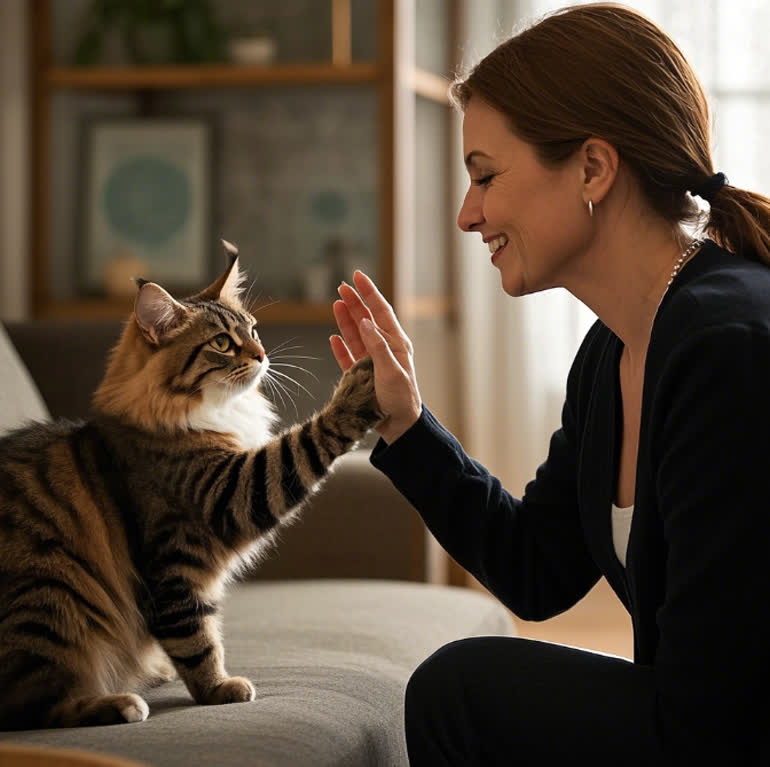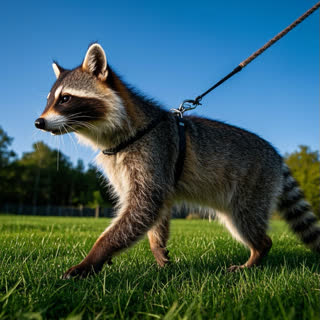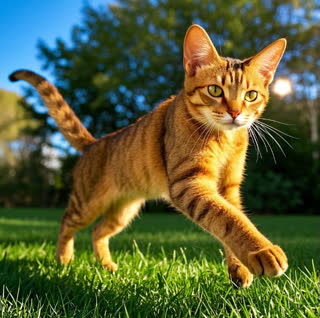Maine Coon cats are more than just pets—they’re living legends with a fascinating history and unique traits that set them apart. As one of the oldest and largest domestic cat breeds, these “Gentle Giants” have captured hearts worldwide with their playful personalities, striking appearance, and surprising quirks. Whether you’re a proud Maine Coon owner or considering bringing one into your home, discover the top 10 fun facts about these magnificent cats that make them truly unforgettable.
Known for their impressive size, Maine Coons are often called the “gentle giants” of the cat world. Adult males can weigh between 15–25 pounds, while females typically range from 10–14 pounds. Their muscular build, long bodies, and large paws make them stand out, with some even measuring over 40 inches from nose to tail. In fact, a Maine Coon named Stewie once held the Guinness World Record for the longest domestic cat, stretching an incredible 48.5 inches!
While most cats rely on meowing to communicate, Maine Coons have a unique vocal repertoire. Instead of traditional meows, they trill, chirp, and even “chatter” to express themselves. This behavior is thought to stem from their friendly and sociable nature, as they use these sounds to interact with humans and other pets. Don’t be surprised if your Maine Coon greets you with a series of trills or follows you around “chatting” about their day!
Hailing from the cold climates of Maine, these cats have evolved to thrive in icy conditions. Their thick, water-resistant fur consists of a soft undercoat and longer guard hairs, protecting them from snow and wind. Their bushy tails act like built-in blankets, helping them stay warm by wrapping around their bodies. Plus, their large paws function as natural snowshoes, making it easier to navigate slippery terrain.
Polydactylism, a genetic trait causing extra toes, is surprisingly common in Maine Coons. While most cats have 18 toes (5 on each front paw, 4 on each back), polydactyl Maine Coons can have up to 28! This trait was historically advantageous for navigating snowy landscapes, and it’s still celebrated today as a charming quirk. Some breeders even specialize in polydactyl Maine Coons, though they’re less common now than in the past.
Unlike many feline counterparts that avoid water, Maine Coons often enjoy playing in it. Their water-resistant fur and playful nature make them curious about sinks, bathtubs, and even swimming pools. You might find your Maine Coon dipping their paws in a water bowl or splashing around in a fountain—just another example of their dog-like behavior!
These cats are known for their sharp minds and problem-solving skills. They’re quick learners and can be trained to fetch, walk on a leash, or even open doors. Their intelligence also makes them highly adaptable, thriving in households with children, other pets, or busy schedules. If you’re looking for a cat that can keep up with your active lifestyle, a Maine Coon might be the perfect match.
In 1985, Maine Coons earned the prestigious title of Maine’s official state cat, cementing their cultural significance. This recognition honors their long history in the region and their role as beloved companions. Whether you’re visiting Maine or simply a fan of the breed, this fun fact adds to their allure.
While Maine Coons are generally hardy, they’re prone to certain genetic health issues, including:
Hypertrophic Cardiomyopathy (HCM): A common heart disease that can be detected through DNA testing and annual echocardiograms.
Polycystic Kidney Disease (PKD): Cysts in the kidneys that can lead to kidney failure; DNA testing is available to screen for this.
Hip Dysplasia: Joint issues managed through diet, weight control, and exercise.
To ensure your Maine Coon’s health, work with a reputable breeder and schedule regular vet checkups.
Maine Coons have hearty appetites and require a balanced diet rich in animal protein. Look for high-quality cat food labeled for their life stage (kitten, adult, or senior) by organizations like AAFCO. Some brands even offer Maine Coon-specific formulas to support their large frames and joint health. Avoid overfeeding to prevent obesity, which can exacerbate health issues.
Despite their size, Maine Coons are incredibly loving and sociable. They form strong bonds with their families and often follow their humans around like loyal dogs. Their gentle nature makes them excellent companions for children and other pets, and they’re known to greet visitors with curiosity rather than fear. If you’re looking for a cat that feels more like a furry family member, a Maine Coon won’t disappoint.
Considering bringing a Maine Coon into your home? While breeders typically charge between $800–$2,500 (prices vary by state and breeder), adoption is a compassionate alternative. Many rescue organizations and shelters have Maine Coons available, often at a lower cost. Adoption not only saves a life but also gives you a loving companion ready to settle into their forever home.
To keep your Maine Coon healthy and happy:
Grooming: Brush their thick fur weekly to prevent matting, and trim nails regularly. Their long whiskers mean wide food bowls are a must to avoid “whisker fatigue.”
Exercise: Provide interactive toys and climbing structures to channel their energy.
Healthcare: Invest in pet insurance to manage potential genetic health issues, and schedule annual checkups.
Maine Coon cats are a breed like no other—part cat, part dog, and entirely captivating. From their giant size to their water-loving antics, these gentle giants continue to charm cat lovers worldwide. Whether you’re fascinated by their history, health needs, or playful personalities, there’s no denying that Maine Coons are truly one of nature’s most remarkable creations.
If you’re ready to welcome a Maine Coon into your life, prepare for a lifetime of love, laughter, and unforgettable adventures with your new feline friend!










